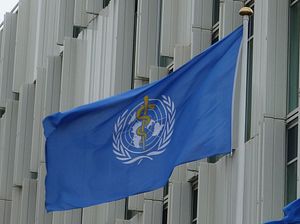As the world is grappling with the rapid spread of the novel coronavirus (which causes the disease COVID-19), the Republic of China (ROC), commonly known as Taiwan, is facing long-standing hurdles to its international participation, showing its mettle in the crisis, and becoming a success story. Despite the fact that Taiwan’s humble request to be part of the World Health Assembly (WHA) in Geneva to be held in mid-May seems less and less possible, greater international support ought to be given to Taiwan’s 23 million people whose lives should be no longer put at risk through such international isolation and whose desire to participate in the World Health Organization (WHO) system should be fulfilled by all countries in the world.
Taiwan’s participation in the WHO system has caused a great deal of political and legal discussions and debates. I would like to provide a people-centered perspective to explain why the ROC should be admitted to the WHO, or at least the WHA.
Taiwan’s success in pre-empting and containing the pandemic was never a fluke. The ROC government plays an important role in delivering information and knowledge related to personal health and epidemic prevention, organizing and coordinating public and private resources, and implementing measures combating COVID-19. Yet the contribution of the people in Taiwan is sometimes ignored. Not only has it helped the country with the COVID-19 emergency, but it has also become a good example for the rest of the world.
First, the people in Taiwan have had a relatively high level of public health education. They learned invaluable lessons from the past. At the turn of the 21st century, the outbreak of the severe acute respiratory syndrome (SARS) in 2003 taught Taiwan a hard and bitter lesson in how to contain the spread of an epidemic. People in Taiwan have become more aware of a potential pandemic crisis and started to take proactive precautionary measures in advance. The success of the central and local governments can be better achieved once the population has understood the severity of an epidemic and knows the way for self-preservation.
Second, due to the experience of SARS, Taiwan has a highly alert population, best demonstrated by the voluntary use of face masks among the general population starting from the first few known large-scale outbreaks of COVID-19 in East Asia. With the development of the COVID-19 pandemic, more and more schools, stores, office buildings, and apartment buildings, among others, began to adopt self-defensive measures by providing hand disinfection and disinfectant sprays, or by setting up body temperature checkpoints at the entrances of buildings. In addition, in part because of such a high degree of self-caution, the people in Taiwan follow whatever reasonable advice is given by the government.
Third, Taiwan has one of the best medical and public health teams devoted to the prevention and treatment of COVID-19 patients. Taiwan also has one of the best supporting groups, for example, the medical professional transportation and cleaning staff. Accordingly, accessibility to the service of a well-established medical healthcare system in Taiwan has been able to function well.
It is worth noticing that all legal residents of the ROC are eligible to join the National Health Insurance (NHI), a single-payer compulsory social insurance program instituted by the Kuomintang (KMT) government back in 1995. As soon as COVID-19 threatened Taiwan, the NIH program, with an integrated system of hospitals and clinics and easily accessible medical and public health capacity, helped the central government assess and manage the situation more easily.
Last, but not least, Taiwan’s robust civil society, particularly in the form of non-governmental organizations (NGOs), has long engaged in providing humanitarian assistance on food security, sanitary supplies, and medical services to countries in need. They fill the void of Taiwan’s not having official aid channels due to the relentless political realities. Some Taiwanese NGOs, sometimes in collaboration with the government, have been giving priority to making the best use of limited resources for collaboration and partnership to help foreign people and societies amid the pandemic.
United we stand. Not only should national governments be united in the face of the COVID-19, but we, the people, should also be united with no political interference. The people in Taiwan, I strongly believe, have been responding to the pandemic appropriately as one of the role models and bridging Taiwan and the societies suffering this specific pandemic in a humanitarian way.
As the leader of Taiwan’s main opposition party, I am grateful to see increased support from part of the international community for Taiwan’s bid to participate in the WHO system. This bid is not about politics but about basic human rights, as well as about Taiwan people’s desire of being able to be recognized by and to contribute to the international community. I am convinced that it will be Taiwan society’s soft power, rather than any political measures, that will make the strongest call for global action in support of Taiwan’s participation in the WHO system.
Johnny Chiang is currently Chairman of the Kuomintang (KMT) and a legislator at the ROC Legislative Yuan. He was a professor at Soochow University, Taipei, Taiwan, specializing in international relations. He was the head of the ROC Government Information Office (GIO) from February 2010 to May 2011.
































